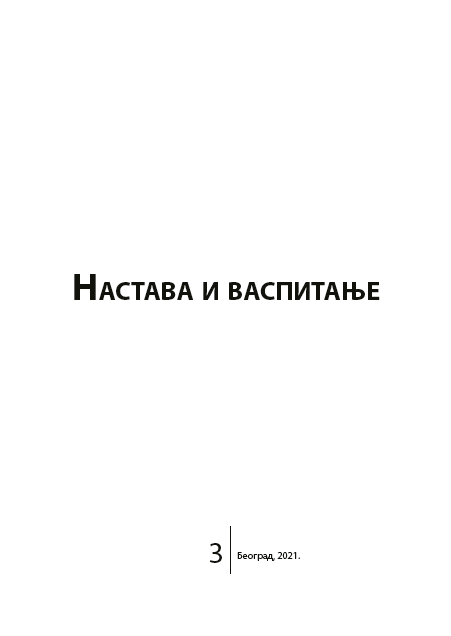Имплицитна уверења ученика и наставника средње школе о креативности
The Implicit Beliefs of Secondary School Students and Teachers about Creativity
Author(s): Slavica MaksićSubject(s): School education
Published by: Педагошко друштво Србије
Keywords: creativity; secondary school; teachers; students; implicit beliefs
Summary/Abstract: Research into the implicit beliefs of the participants of the educational process about creativity is important in view of the influence these beliefs have on the recognition and fostering of creativity in schools. The aim of this paper is to examine what students and teachers who took part in our study of implicit beliefs about creativity felt they needed to add or clarify regarding their beliefs. It analyzes freeform comments that high school students (N = 41) and teachers (N = 20) wrote in response to questions in the Implicit Theories of Creativity Questionnaire. The collected material was analyzed using thematic analysis of the inductive and deductive type. First, a thematic analysis of the inductive type was carried out, leading to the definition of three themes: conceptualization of creativity, stimulation of creativity, and ego-involvement. In the second data processing stage, a thematic analysis of the deductive type was performed. Replies within the theme of conceptualization of creativity were classified as creative person, process, product and environment (the 4P model of creativity), and replies within the theme of stimulating creativity were classified as the influences of school, the education system and society (Expert model for stimulating creativity). It was established that the dominant theme in students’ comments was the conceptualization of creativity, while teachers focused on the stimulation of creativity. As regards the stimulation of creativity, students prioritized classroom work and school influence, while teachers highlighted the functioning of the education system. Students displayed greater personal involvement in their responses than teachers did. The obtained findings are discussed in the context of creating conditions for the better understanding and stimulation of creativity in secondary school. The findings suggest that respondents’ freeform comments are a valuable source of data which expand our knowledge of the studied phenomena.
Journal: Nastava i vaspitanje
- Issue Year: 70/2021
- Issue No: 3
- Page Range: 285-300
- Page Count: 16
- Language: Serbian

